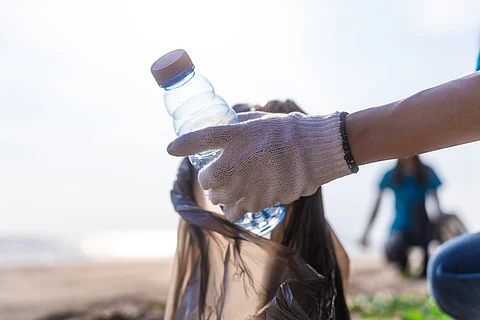

The Delhi-based think tank Centre for Science and Environment (CSE) recently hosted the third Coalition of Coastal Cities workshop to build momentum for a National Marine Litter Policy. Held from June 24-26, 2025 at the Anil Agarwal Environment Training Institute in Rajasthan, the workshop brought together officials from urban development departments, marine and coastal researchers, civil society organisations and global plastic experts.
The Coalition, conceptualised by CSE, served as a dedicated platform for dialogue and knowledge exchange aimed at supporting the development of the policy, grounded in field-based evidence and research. This gathering provided fertile ground for deliberations on tackling the pervasive issue of marine litter in India.
Atin Biswas, programme director of the municipal solid waste and circular economy unit at CSE, reflected on the backdrop of the India-Norway Marine Litter Partnership and set the expectations for the event in his opening address. The sessions on the first day were centred around understanding the broader challenge of marine litter.
Through intensive discussions, participants explored global definitions of marine litter and how these differ from marine pollution. A consistent theme that emerged across case studies and characterisation studies globally was the dominance of plastics, which are generally estimated to constitute around 60-80 per cent of marine litter.
Participants were grouped for a collaborative activity aimed at identifying case-specific sources, pathways and sinks of marine litter. These practical insights enabled a deeper understanding of how marine litter travels from its source to its final deposition sites.
Further, sector-specific challenges were highlighted, with a particular focus on the mismanagement of municipal solid waste, shipping, industries and trade, the tourism sector and the fishing sector, each identified as significant contributors to the problem.
Day two of the workshop shifted the focus to plastic leakages in inland water bodies, with a case study from Agra city, Uttar Pradesh. Discussions were anchored around the study examining macro- and microplastic pollution in the Yamuna River. The methodology, which mapped plastic flows from both major and minor drains, as well as Garbage Vulnerable Points along the riverbanks, generated considerable interest among participants.
The study found that banned single-use plastic items and banned packaging were identified as major contributors, with polypropylene and multilayered packaging as polymer hotspots. Inefficiencies in the existing infrastructure, such as iron mesh installed by the local government, allowed large volumes of plastic debris to flow into the Yamuna, particularly during periods of peak river flow.
The study presented a replicable methodology that could be adopted by local governments to create baselines and understand the amount of mismanaged plastic waste entering natural ecosystems through the city’s drainage network.
Participants discussed the potential to integrate marine litter indicators into frameworks like Swachh Survekshan and advocated for the institutionalisation of periodic leakage audits to track plastic flow into water bodies. The microplastic analysis further identified packaging waste, textiles and tyre wear as dominant sources of microplastic pollution in the Yamuna stretch, underlining the complexity and diversity of plastic sources even in inland riverine systems.
Building upon the understanding that plastics are a major land-based contributor to marine litter, the final day of the workshop examined the economic aspects of managing plastic waste — especially plastic packaging, which forms about 46 per cent of the plastic waste stream. The session began with an overview of India’s plastic waste management policy landscape, focusing on the roles and responsibilities defined under the Extended Producer Responsibility (EPR) framework.
Talks centred on the functioning of the Central Pollution Control Board’s centralised EPR portal and the compliance mechanisms for producers, importers and brand owners known as PIBO, alongside plastic waste processors or PWP. The certificate-based compliance under EPR used to manage stakeholder responsibilities came under scrutiny, especially with regard to ground-level implementation.
Later, a detailed cost analysis showed different stages of plastic waste management, covering primary collection, secondary collection, processing and final transportation. This analysis was conducted across varied geographies, including plains, coastal zones, islands and mountainous regions, highlighting how regional characteristics influence both the logistics and economics of plastic waste management.
The workshop with the Coalition of Coastal Cities succeeded in underlining the urgent need to address land-based plastic waste as a major source of marine litter. It provided a holistic view of the issue, from identification of sources and pathways to the ultimate sinks of mismanaged plastic waste.
While significant strides have been made in understanding the marine litter problem, the discussions concluded with a collective recognition that more robust, government-supported data and sustained inter-sectoral collaboration will be essential to shaping a comprehensive National Marine Litter Policy in India.